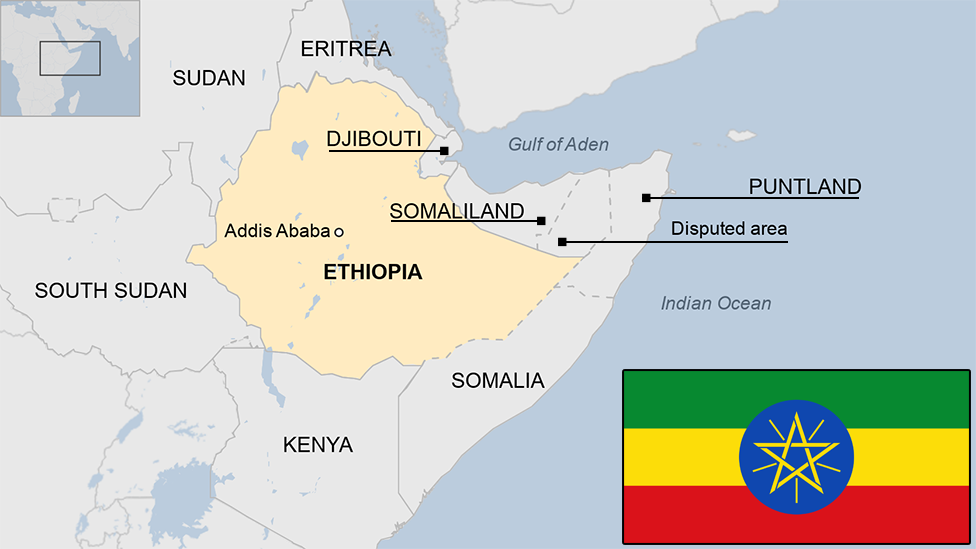Tigray conflict: ‘We have no food, we face death’
- Published
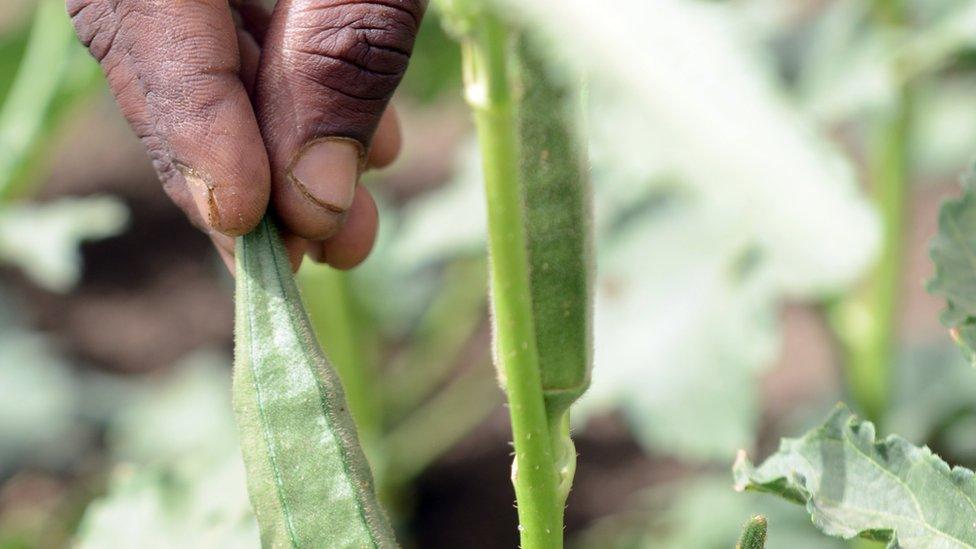
Residents of western Tigray say their crops were looted by militias and they are surviving on the little they hid
People in a district of Ethiopia's Tigray region have told the BBC they are on the verge of starvation.
"We don't have anything to eat," a man in Qafta Humera said, saying their crops and livestock had been looted during seven months of war.
He added that they were being prevented from seeking aid by a militia fighting with government forces.
The testimony comes as UN chief António Guterres has warned that parts of Tigray are on the brink of famine.
A conflict erupted in November between the Ethiopian government and Tigrayan rebels, forcing close to two million people from their homes in Tigray, a region that was already food insecure.
The Ethiopian authorities insist that order is now being restored across the region and humanitarian access expanded.
But last week, the UN warned of a repeat of Ethiopia's devastating 1984 famine and called for an immediate ceasefire in Tigray.
What are conditions like?
Dire and frightening, according to people living in Qafta Humera, an isolated district in the west of Tigray that is close to the borders of Sudan and Eritrea, who were contacted by the BBC Tigrinya service via phone.
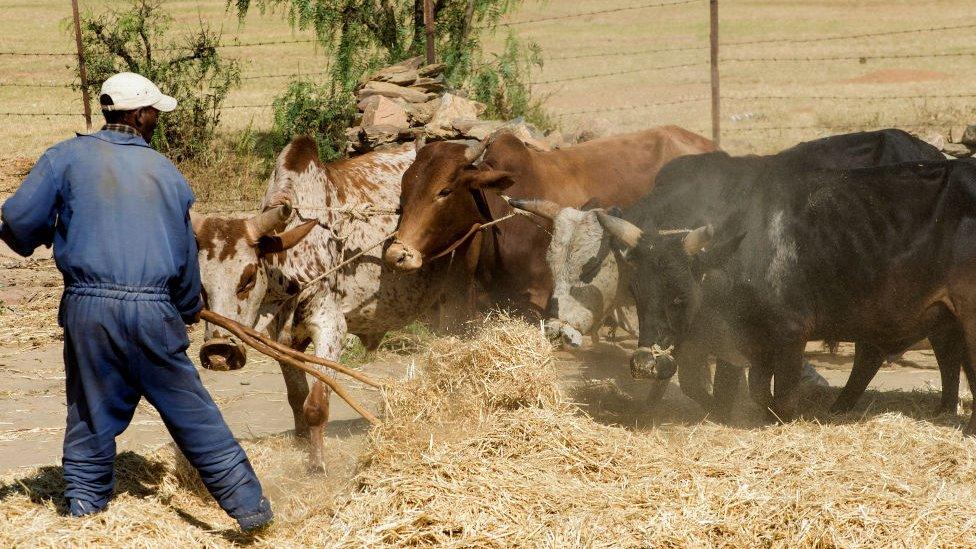
Cattle have also been lost during the conflict
Since November 2020, the western Tigray zone has been occupied by pro-government forces and militias from the neighbouring region of Amhara.
"We are civilians, our crops and cattle have been taken by the armed men," one farmer in his 60s said.
"They took from me around 30 cows and oxen - there are some who lost 100-200 head of cattle."
Another farmer, in his 40s, told the BBC: "We were eating small remains of crops that we managed to hide, but now we don't have anything.
"Nobody has given us any aid. Almost everyone is on the verge of death - our eyes are affected by the hunger, the situation is perilous.
"Death is knocking on our door. You can see the hunger on the face of each of us."
Residents said they had seen vehicles carrying aid pass by, but no-one had bothered to inquire about their predicament.
Why aren't residents fleeing?
Because they are trapped.
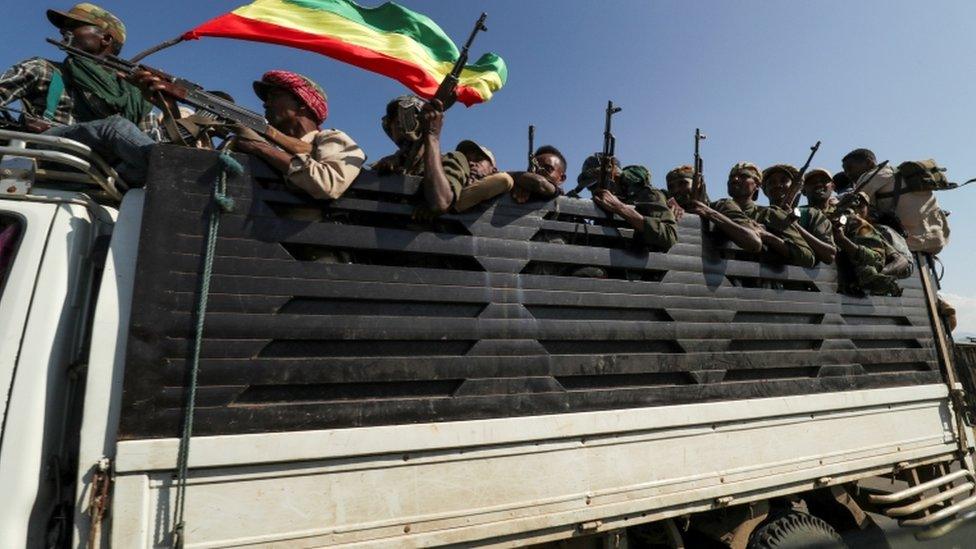
Qafta Humera residents said Amhara militias were preventing them from leaving the area
The older farmer said people have been trying to travel elsewhere, like the towns of Shire and Sheraro - about 200km (125 miles) east of their district, to find food and humanitarian supplies.
But transport has been difficult to come by and those that have vehicles have been prevented from leaving the area by the militia.
"When we want to go to the place where there is aid all roads are blocked," he said, adding that those who have tried to flee on foot have been asked to pay bribes, which they cannot afford.
"Even if we try on foot, if the militias from Amhara found us they force us to pay 4,000-5,000 birr [between $90 and $115] each."
The younger farmer added that people feared being killed if they came face-to-face with the militia in the bush.
"If we try to go to the place where there is aid we will be killed in the forest," he said.
What has the response been?
A local administrator appointed for the area in the wake of the conflict told the BBC that no federal aid was available and only limited assistance was coming through for neighbouring Amhara.


Mr Guterres warned the situation would "only keep getting worse, external" unless funding was increased and humanitarian access was improved.
The government says international humanitarian workers have been allowed into most parts of Tigray.
Months after the conflict begun, many critical services have not been fully restored. Dozens of health centres and hospitals have been destroyed or looted.
Why is there a war?
It erupted when Ethiopia's government launched an offensive to oust the region's then ruling party, the Tigray People's Liberation Front (TPLF).
The party had had a massive fallout with Prime Minister Abiy Ahmed over political changes to the country's ethnically based federal system - though the TPLF's capture of federal military bases in Tigray was the catalyst for the invasion.
Mr Abiy, a Nobel Peace Prize winner, declared that the conflict was over at the end of November, but fighting has continued.
Thousands of people have been killed and about 1.7 million have fled their homes. Tens of thousands have sought refuge in neighbouring Sudan.
The conflict has also involved troops from neighbouring Eritrea fighting with the government.
All sides have been accused of numerous human rights abuses.
Related topics
- Published25 January 2021

- Published6 December 2020
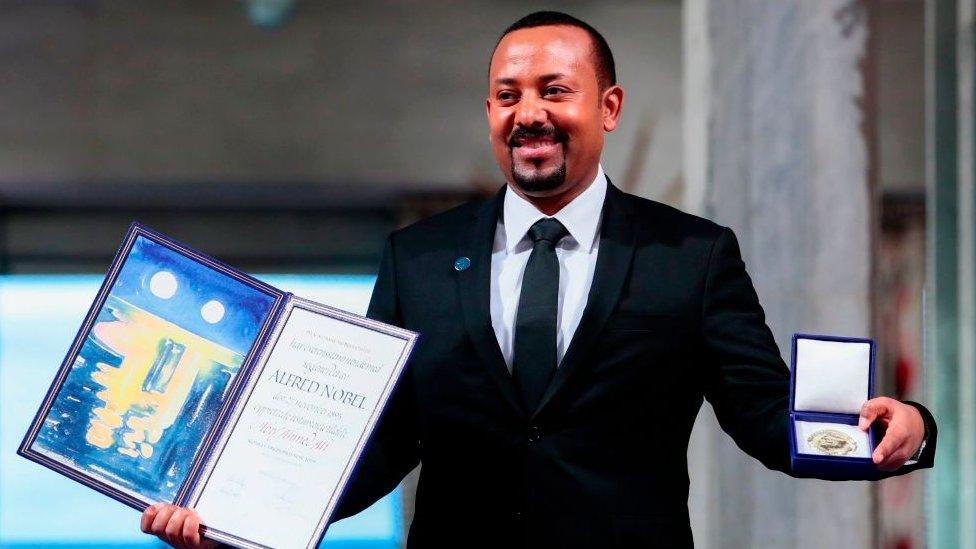
- Published7 February 2021
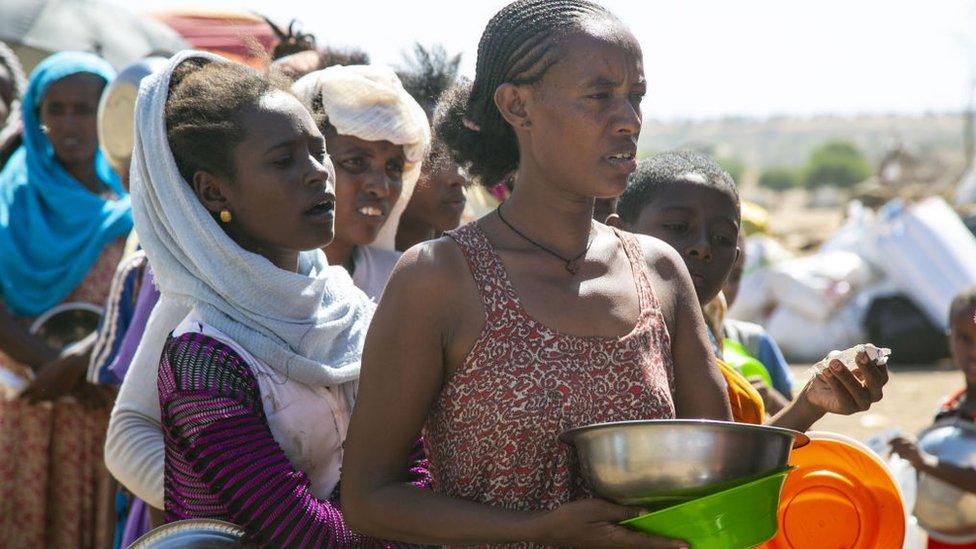
- Published2 January 2024
